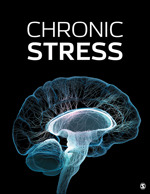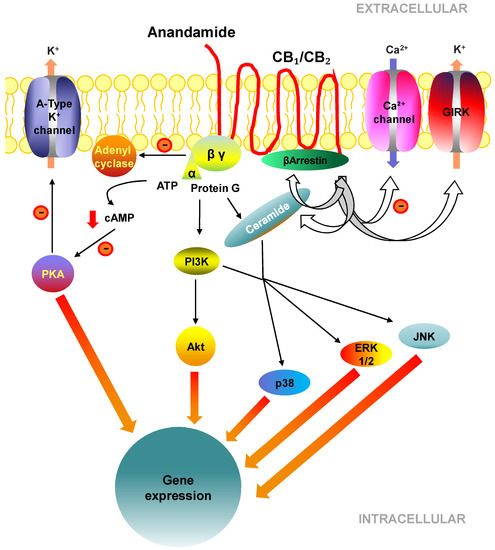 “L-dopa induced dyskinesia (LID) is a debilitating side-effect of the primary treatment used in Parkinson’s disease (PD), l-dopa. Here we investigate the effect of HU-308, a cannabinoid CB2 receptor agonist, on LIDs.
“L-dopa induced dyskinesia (LID) is a debilitating side-effect of the primary treatment used in Parkinson’s disease (PD), l-dopa. Here we investigate the effect of HU-308, a cannabinoid CB2 receptor agonist, on LIDs.
Utilizing a mouse model of PD and LIDs, induced by 6-OHDA and subsequent l-dopa treatment, we show that HU-308 reduced LIDs as effectively as amantadine, the current frontline treatment. Furthermore, treatment with HU-308 plus amantadine resulted in a greater anti-dyskinetic effect than maximally achieved with HU-308 alone, potentially suggesting a synergistic effect of these two treatments. Lastly, we demonstrated that treatment with HU-308 and amantadine either alone, or in combination, decreased striatal neuroinflammation, a mechanism which has been suggested to contribute to LIDs.
Taken together, our results suggest pharmacological treatments with CB2 agonists merit further investigation as therapies for LIDs in PD patients. Furthermore, since CB2 receptors are thought to be primarily expressed on, and signal through, glia, our data provide weight to suggestion that neuroinflammation, or more specifically, altered glial function, plays a role in development of LIDs.”
https://www.ncbi.nlm.nih.gov/pubmed/31669673
“Collectively, our findings suggest CB2 agonists offer a putative target to treat LIDs, with efficacy comparable to the frontline treatment amantadine. Our study suggests that targeting glial function may be an important strategy for developing therapies for treating LIDs, a major unmet need for PD patients.”
https://www.sciencedirect.com/science/article/pii/S0969996119303213?via%3Dihub

 “The role of the endocannabinoid system in stress-related psychiatric symptoms has been investigated in many animal and human studies.
“The role of the endocannabinoid system in stress-related psychiatric symptoms has been investigated in many animal and human studies. “The CB1 receptor mediates the central nervous system response to cannabinoids, and is a drug target for pain, anxiety and seizures.
“The CB1 receptor mediates the central nervous system response to cannabinoids, and is a drug target for pain, anxiety and seizures. “Bone cancer pain (BCP) is a severe complication of advanced bone cancer.
“Bone cancer pain (BCP) is a severe complication of advanced bone cancer. “Hepatic fibrosis is the consequence of an unresolved wound healing process in response to chronic liver injury and involves multiple cell types and molecular mechanisms. The hepatic endocannabinoid and apelin systems are two signalling pathways with a substantial role in the liver fibrosis pathophysiology-both are upregulated in patients with advanced liver disease. Endogenous
“Hepatic fibrosis is the consequence of an unresolved wound healing process in response to chronic liver injury and involves multiple cell types and molecular mechanisms. The hepatic endocannabinoid and apelin systems are two signalling pathways with a substantial role in the liver fibrosis pathophysiology-both are upregulated in patients with advanced liver disease. Endogenous 


 “Preclinical studies have shown that cannabidiol (CBD) mitigates fear memories by facilitating their extinction or interfering with their generalization and reconsolidation. The brain regions and mechanisms underlying these effects, and their temporal window, are still poorly understood. The present paper aimed at investigating related questions in the dorsal hippocampus (DH) during contextual fear consolidation.
“Preclinical studies have shown that cannabidiol (CBD) mitigates fear memories by facilitating their extinction or interfering with their generalization and reconsolidation. The brain regions and mechanisms underlying these effects, and their temporal window, are still poorly understood. The present paper aimed at investigating related questions in the dorsal hippocampus (DH) during contextual fear consolidation. “Parkinson’s disease (PD) and L-DOPA-induced dyskinesia (LID) are motor disorders with significant impact on the patient’s quality of life. Unfortunately, pharmacological treatments that improve these disorders without causing severe side effects are not yet available. Delay in initiating L-DOPA is no longer recommended as LID development is a function of disease duration rather than cumulative L-DOPA exposure.
“Parkinson’s disease (PD) and L-DOPA-induced dyskinesia (LID) are motor disorders with significant impact on the patient’s quality of life. Unfortunately, pharmacological treatments that improve these disorders without causing severe side effects are not yet available. Delay in initiating L-DOPA is no longer recommended as LID development is a function of disease duration rather than cumulative L-DOPA exposure. “Memory and GABAergic activity in the hippocampus of stressed rats improve after n-3 polyunsaturated fatty acid (PUFA) supplementation.
“Memory and GABAergic activity in the hippocampus of stressed rats improve after n-3 polyunsaturated fatty acid (PUFA) supplementation.